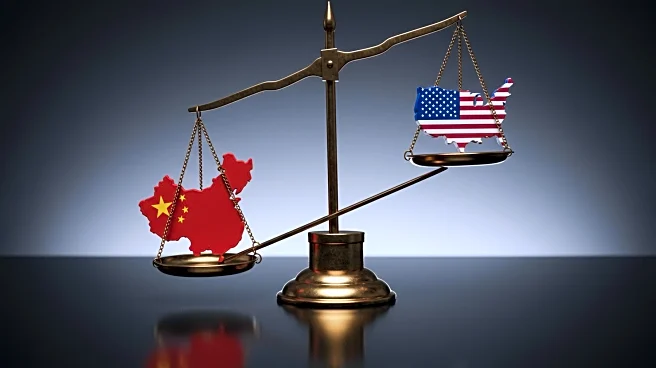What is the story about?
What's Happening?
President Trump has taken a historically aggressive stance against China, implementing high tariffs on Chinese goods. Despite initial concerns, the U.S. economy has shown resilience, with the stock market reaching near-record highs and inflation remaining stable. Trump has secured concessions from China, including purchases of U.S. soybeans and a halt to antitrust investigations into American companies. However, Chinese leader Xi Jinping holds significant leverage, controlling rare-earth minerals crucial for U.S. manufacturing and defense. Xi has also expanded China's export markets, maintaining economic growth despite U.S. tariffs.
Why It's Important?
The tariffs imposed by President Trump represent a significant shift in U.S.-China trade relations, impacting global economic dynamics. While the U.S. has benefited from tariff revenues, the long-term effects on American businesses reliant on Chinese goods remain uncertain. China's control over rare-earth minerals poses a strategic challenge for the U.S., affecting national security and industrial sectors. The ongoing trade negotiations and economic maneuvers by both nations could reshape international trade policies and influence global market stability.
What's Next?
Future developments may include further negotiations between the U.S. and China, potentially leading to adjustments in tariff levels and trade agreements. The U.S. may seek to diversify its supply chain to reduce dependency on Chinese rare-earth minerals. Additionally, President Trump may continue to leverage economic indicators, such as stock market performance, to bolster his trade strategy. The geopolitical landscape will likely evolve as both countries navigate economic and diplomatic challenges.
















